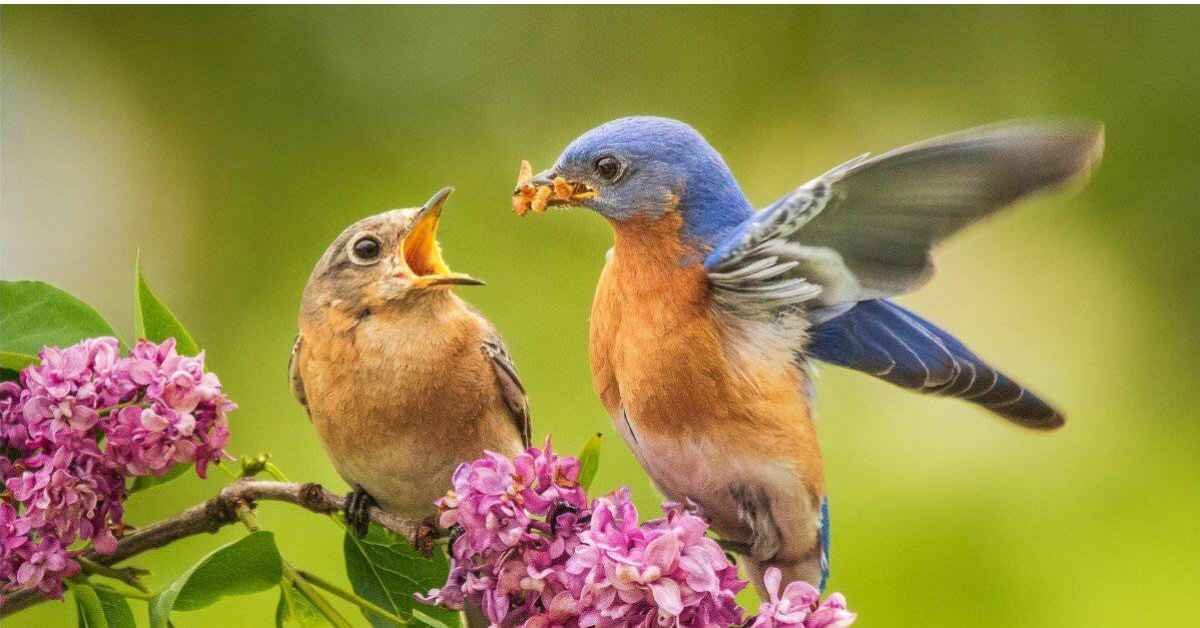Bluebirds are beautiful, colorful birds known for their vivid blue feathers and melodic songs. Their diet primarily consists of insects, berries, and fruits, making them vital for natural pest control. By understanding what bluebirds eat, you can attract these charming birds to your garden.
Ever wondered how to attract more bluebirds to your backyard? The secret lies in knowing their favorite foods tiny insects and juicy berries. Let’s dive into what bluebirds love to eat and how you can create a perfect menu for them!
Diet Of Blue Bird
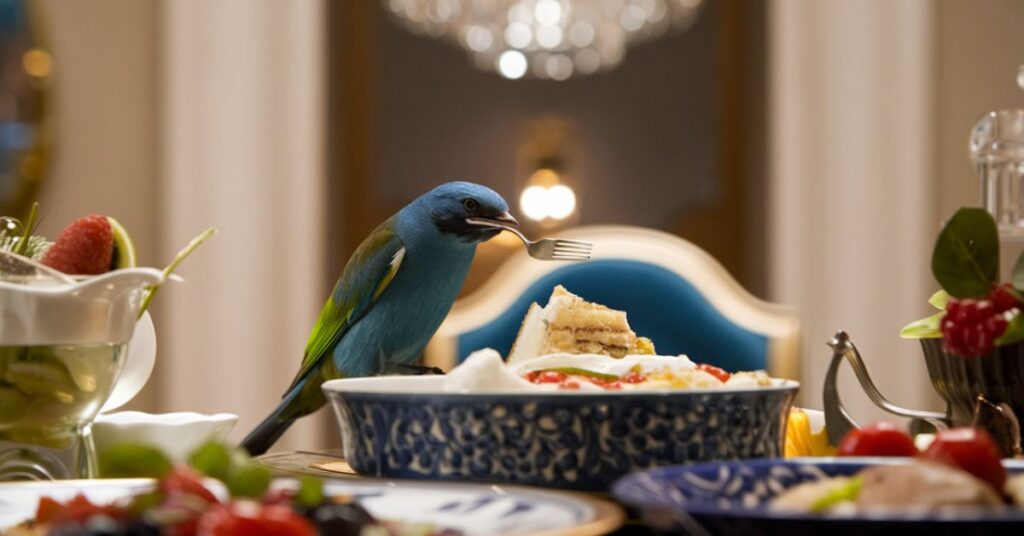
Bluebirds thrive on a varied diet that includes insects, fruits, and seeds. Understanding their dietary preferences can help you attract and support these vibrant birds in your garden.
Insects: The Staple of Their Diet
Bluebirds primarily feed on insects like beetles, grasshoppers, and caterpillars. These protein-rich foods are crucial, especially during breeding season when they need extra energy.
Berries: A Sweet Treat
Berries such as elderberries, dogwood, and holly are a favorite of bluebirds. These fruits provide essential vitamins and nutrients, especially during colder months.
Seeds: A Winter Resource
When insects and fruits are scarce, bluebirds turn to seeds. They enjoy sunflower seeds, which are packed with fats and proteins, helping them survive harsh winters.
Mealworms: A Protein Boost
Offering mealworms in feeders can attract bluebirds to your yard. These are an excellent protein source, especially during nesting and migration periods.
Suet: A High-Energy Snack
Suet cakes, made from animal fat, are an energy-dense food. Bluebirds benefit from suet during winter when other food sources are limited.
Water: Essential for Digestion
Bluebirds require fresh water for drinking and bathing. A clean water source not only helps with digestion but also attracts them to your garden.
Avoiding Harmful Foods
Certain foods like bread and processed grains can be harmful to bluebirds. Stick to natural options like insects, fruits, and seeds to keep them healthy.
Bluebird Diet Breakdown
| Food Type | Examples | Benefits |
| Insects | Beetles, Grasshoppers | High in protein |
| Berries | Elderberries, Dogwood | Rich in vitamins |
| Seeds | Sunflower seeds | Provides fats and protein |
| Mealworms | Dried or Live | Excellent protein source |
| Suet | Suet cakes | Energy-dense for winter |
Also Read This Blog: Shima Enaga: Japan’s adorable snow bird
Natural Food Sources
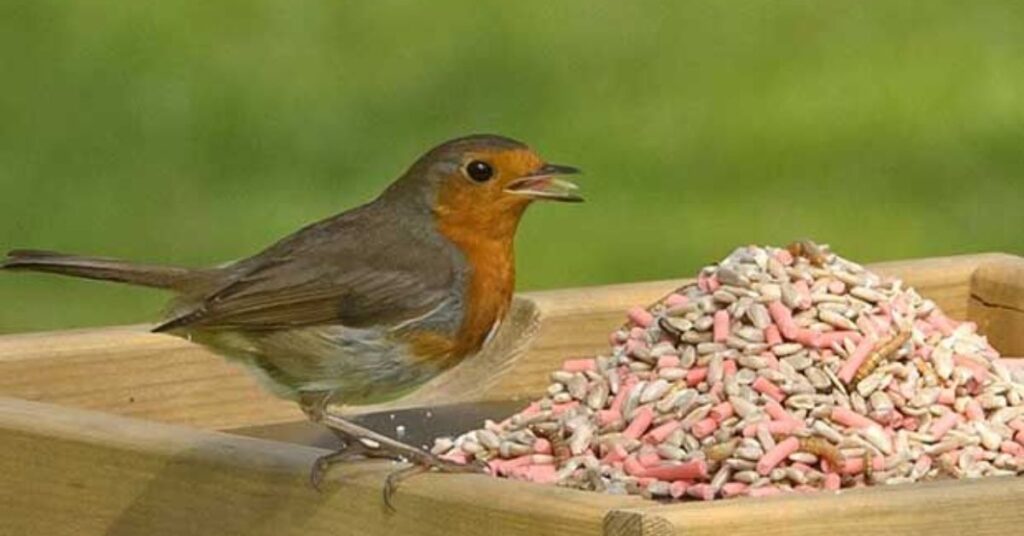
Natural food sources for birds are vital for their survival and health. Providing a variety of native plants, insects, and seeds ensures that birds can thrive in their natural habitats.
Native Plants: The Foundation
Native plants produce seeds, fruits, and nectar that are perfectly suited for local birds. These plants also attract insects, providing a complete food source.
Insects: Nature’s Protein
Insects like caterpillars, beetles, and spiders are essential for many birds, especially during nesting season. They provide the necessary protein for growing chicks.
Seeds: A Nutrient-Dense Option
Seeds from grasses, sunflowers, and wildflowers offer birds fats and proteins. These are especially important during colder months when other foods are scarce.
Berries: Seasonal Delights
Berries from shrubs like elderberry and dogwood are a seasonal food source. They provide essential vitamins and energy, particularly in the fall and winter.
Nectar: Sweet Energy
Hummingbirds and other nectar-feeding birds rely on the nectar from flowering plants. This sugary substance gives them a quick energy boost.
Tree Nuts: A Rich Resource
Nuts from trees like oaks and pines offer birds a calorie-dense food source. They are especially favored by species like woodpeckers and jays.
Aquatic Plants: Wetland Wonders
Birds in wetland areas often feed on seeds and small organisms found in aquatic plants. These sources are rich in nutrients and support a diverse bird population.
Natural Food Sources Breakdown
| Food Source | Examples | Benefits |
| Native Plants | Grasses, Wildflowers | Seeds, fruits, nectar |
| Insects | Beetles, Spiders | High protein for chicks |
| Seeds | Sunflower, Grass seeds | Fats and proteins for energy |
| Berries | Elderberry, Dogwood | Vitamins and seasonal energy |
| Nectar | Flowering plants | Quick energy for hummingbirds |
| Tree Nuts | Acorns, Pine nuts | Calorie-dense for winter |
| Aquatic Plants | Water lilies, Reeds | Nutrient-rich for wetland birds |
Feeding Blue Bird
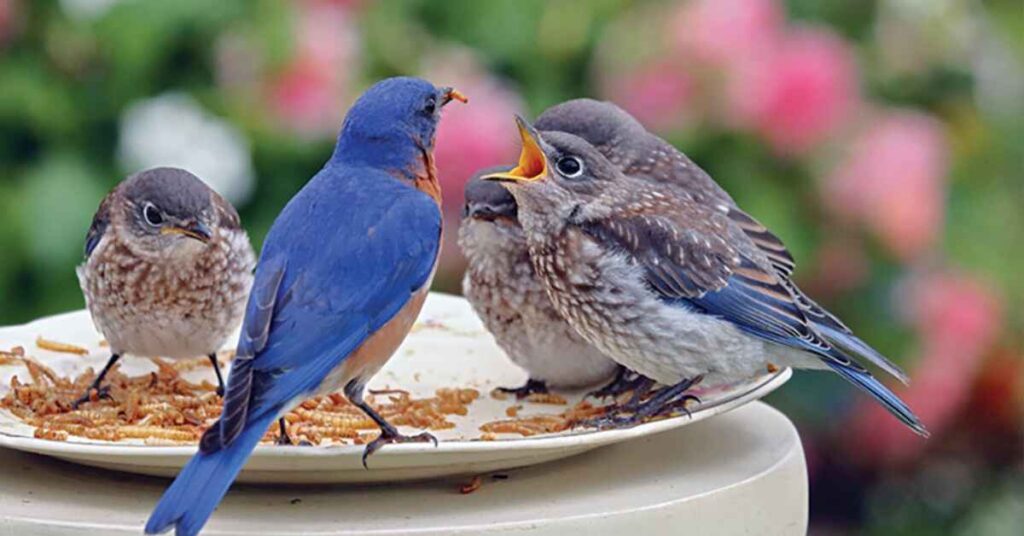
Feeding bluebirds requires understanding their natural diet and providing the right food sources. This ensures their health and encourages them to visit your garden regularly.
Offering Mealworms
Mealworms are a bluebird favorite, rich in protein and easy to offer. Place them in a shallow dish to attract bluebirds, especially during nesting season.
Providing Fresh Berries
Fresh berries like blueberries and elderberries can draw bluebirds to your yard. These fruits supply essential vitamins and energy, particularly in the summer.
Setting Up Suet Feeders
Suet provides high-energy nutrition, especially in colder months. Hang suet feeders close to bluebird nest boxes to keep these birds well-fed during winter.
Using Bluebird-Specific Feeders
Bluebird feeders are designed with openings that prevent larger birds from stealing food. Fill these with mealworms or suet to ensure bluebirds get their share.
Maintaining Clean Water Sources
Bluebirds need fresh water for drinking and bathing. Providing a clean birdbath or shallow dish of water is essential, especially during hot weather.
Avoiding Processed Foods
Avoid feeding bluebirds bread or processed foods, as these can harm their health. Stick to natural foods like insects, berries, and seeds for optimal nutrition.
Creating a Safe Feeding Environment
Ensure feeders are placed away from predators and in a quiet spot. This encourages bluebirds to feed without fear, increasing the chances of regular visits.
Bluebird Feeding Essentials
| Feeding Tip | Details | Benefits |
| Offer Mealworms | Protein-rich food in a dish | Supports nesting and growth |
| Provide Fresh Berries | Blueberries, Elderberries | Essential vitamins and energy |
| Set Up Suet Feeders | High-energy food for winter | Sustains in colder months |
| Use Bluebird Feeders | Special design for bluebirds | Ensures they get their share |
| Maintain Water Sources | Fresh, clean water | Hydration and hygiene |
| Avoid Processed Foods | No bread or processed grains | Prevents health issues |
| Create Safe Environment | Predator-free feeding spots | Encourages frequent visits |
What do bluebirds eat at feeders
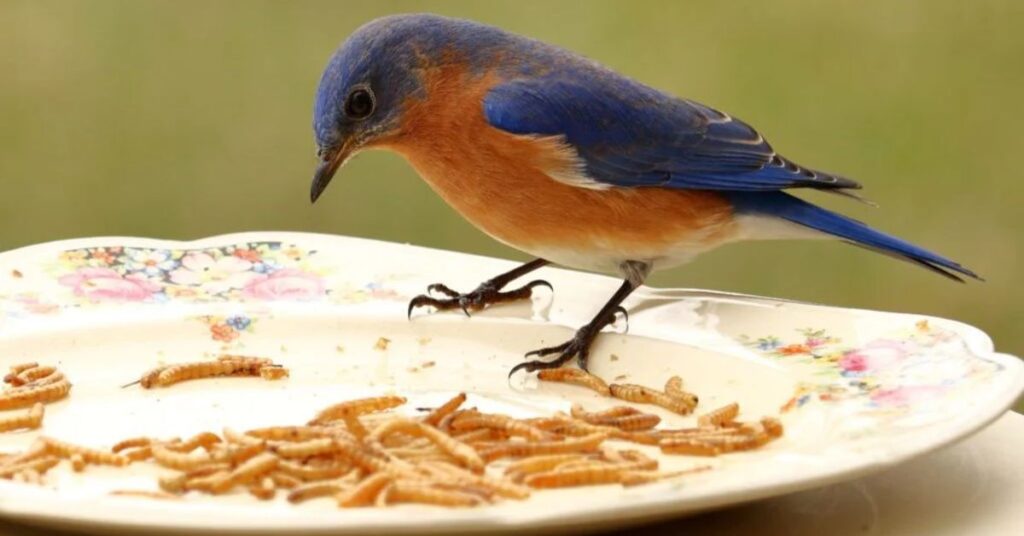
At feeders, bluebirds primarily eat live or dried mealworms, which are rich in protein. They also enjoy suet, especially in winter, along with chopped fruits like apples and raisins. Sunflower hearts and peanut pieces provide additional nutrients, making them ideal for bluebird feeders.
What kind of fruit do bluebirds eat
| Fruit Type | Examples | Benefits |
| Berries | Blueberries, Elderberries, Serviceberries | High in vitamins and antioxidants |
| Wild Fruits | Dogwood Berries, Mulberries, Cherries | Provides energy, especially in winter |
| Small Orchard Fruits | Apples (chopped), Grapes (halved) | Easy to eat and digest |
| Shrub Fruits | Juniper Berries, Holly Berries | Adds variety and essential nutrients |
What do bluebirds eat in the winter
In the winter, bluebirds primarily eat berries, such as holly and juniper, which are rich in energy. They also consume suet, mealworms, and sunflower seeds to supplement their diet when insects are scarce. These high-calorie foods help them survive the colder months.
What do bluebirds eat at night
Bluebirds are not active at night and do not eat during this time. They primarily forage for insects, berries, and seeds during daylight hours. At night, they rest in roosting sites to conserve energy. Their feeding habits are restricted to daylight, as they rely on their vision to find food.
Do bluebirds eat corn And blueberries
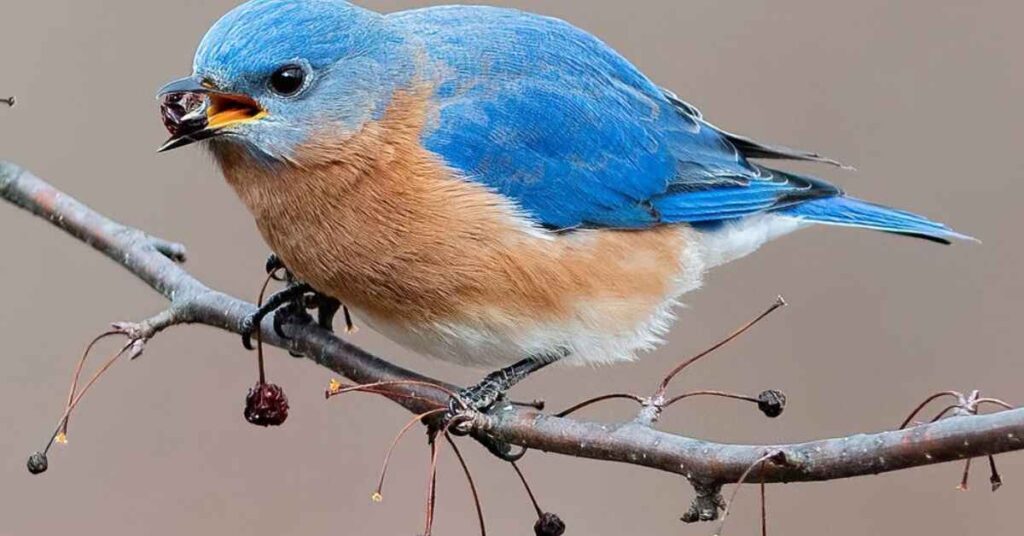
Bluebirds generally do not eat corn as it is not part of their natural diet. They do enjoy blueberries, which provide essential vitamins and antioxidants. Offering blueberries at feeders can attract bluebirds and provide them with a nutritious treat. Corn is more commonly consumed by larger birds or as birdseed for other species.
Do bluebirds eatBluebird Feeder
Bluebirds use specially designed feeders to access their preferred foods like mealworms and suet. These feeders often have small openings to prevent larger birds from stealing the food. Bluebird feeders help attract these birds by providing easy access to high-protein treats. They are particularly useful during the breeding season and winter.
Also Read This Blog: sun conure price
Summary
Bluebirds eat a diet rich in insects, including beetles and caterpillars, which supply necessary protein. They also consume various fruits, such as blueberries and elderberries, for vitamins and energy. During colder months, they rely on suet and seeds to sustain them. Offering these foods can help attract bluebirds to your garden.

Welcom to https://birdsaboutinfo.com. Our content is for general information purposes. While we aim for accuracy, use it at your own risk. Seek professional advice for specific concerns. We’re not responsible for external links or the outcome of using our information. Some content may contain affiliate links. We may update this Disclaimer.
